Evocative pictures of Crocknacrieve and two extraordinary near-(nick)namesakes
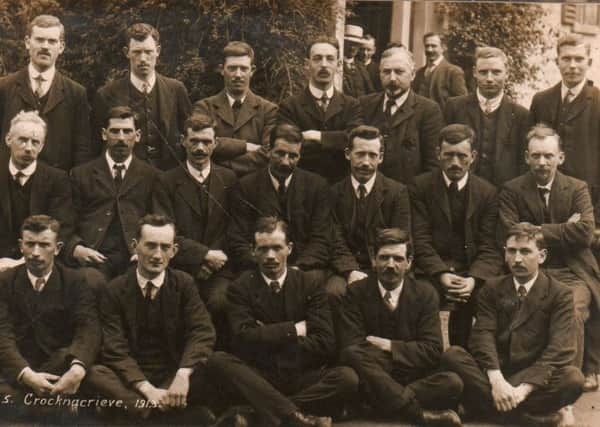

First, the old photos, sent by regular contributor Selwyn Johnston, were accompanied with a plea for help – “anyone know where these might have been taken, and why?”
Each photo is a group-picture of immaculately dressed men, women and kitchen staff in aprons, taken outside what seems to be a large house.
Advertisement
Hide AdAdvertisement
Hide AdThe date is 1913 and each picture is captioned ‘Crocknacrieve’.
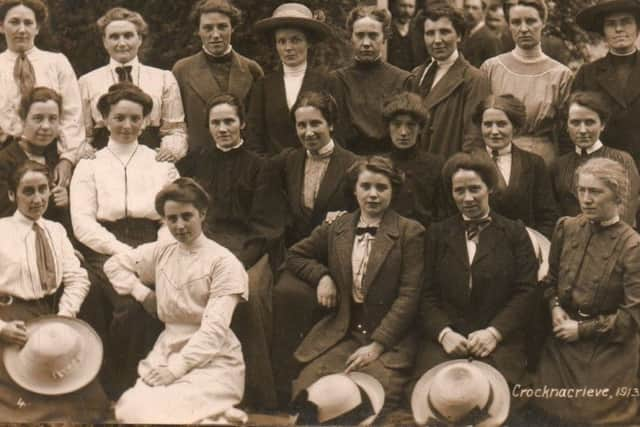

Can anyone answer Selwyn’s query – “where these might have been taken, and why?”
Please send your suggestions to Roamer’s mailbox address shown at the bottom of the page.
The second theme today comes from another regular letter writer, Mitchell Smyth, originally from Ballycastle and now following the News Letter via the internet in Canada.
Advertisement
Hide AdAdvertisement
Hide Ad“When I was a boy in rural Ulster,” Mitchell recently reminisced, “you’d often hear the expression ‘You look like half-hanged (or half-hung) McNaghten’.”
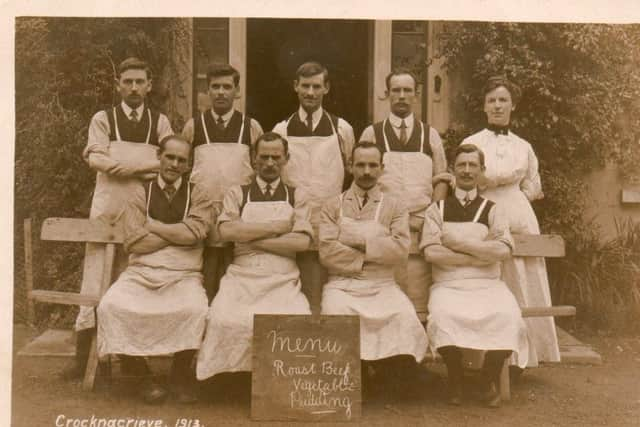

The rebuke was generally aimed at people who were particularly untidy or dishevelled.
And there’s an intriguing slant to the true story of John McNaughton from Co Antrim who earned the nickname back in the 18th century.
“Did you know,” Mitchell’s letter continued, “that McNaughton had a near-(nick)namesake – a woman, across the Irish Sea?”
All is now revealed by Mitchell:
Advertisement
Hide AdAdvertisement
Hide Ad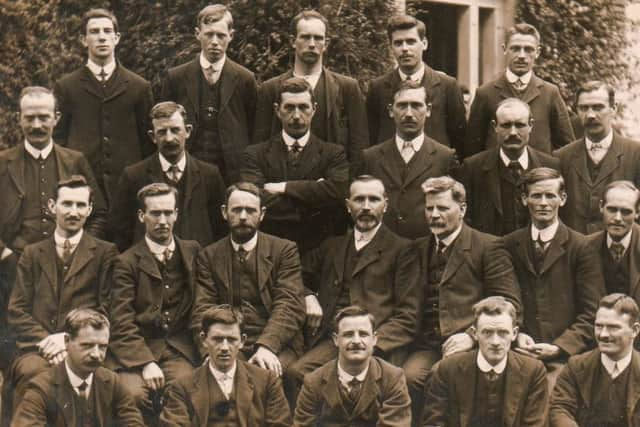

The woman was Margaret Dickson from Edinburgh, who has gone down in Scottish folklore as Half-Hangit Maggie.
The name lives to this day in a pub-restaurant in the city – Maggie Dickson’s.
John McNaghten, so far as I know, hasn’t given his name to a pub, but he may have given us a literary legacy, for there’s a theory that his story was one of the inspirations for Emily Bronte’s Wuthering Heights.
But first, Margaret Dickson.
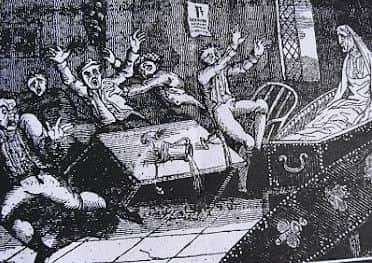

Maggie was a fish seller in Edinburgh – a sort of Scottish Molly Malone – in the 18th century.
Advertisement
Hide AdAdvertisement
Hide AdMaggie, separated from her husband, gave birth to an illegitimate child but kept the pregnancy secret.
The child was sickly and died within a few days and she was charged with infanticide.
An Edinburgh court sentenced her to hang.
She was pronounced dead on the gallows on September 2, 1721, and her family took the body in a coffin to be buried in her parish.
But the jostling of the cart over cobbled streets woke Maggie.
Advertisement
Hide AdAdvertisement
Hide Ad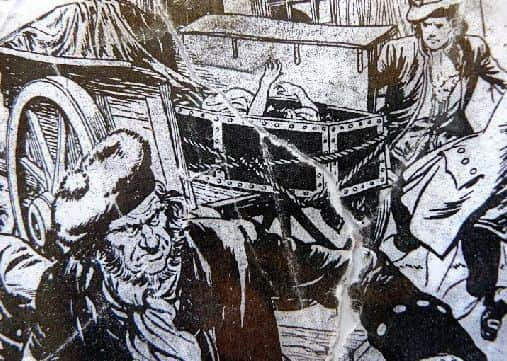

A newspaper reported: “The law deemed this an act of God, bringing Maggie back from the dead, and pardoned her.”
Maggie Dickson lived another 40 years and was often recognised in the streets of Edinburgh where people would cry out: “Half-hangit Maggie!”
She lived to hear her name called out but John McNaghten, the star player in one of the great Irish dramas of the 18th century, didn’t.
John was born in Benvarden, Co Antrim, the son of a prosperous landowning family, in 1722, a year after Maggie cheated the hangman.
Advertisement
Hide AdAdvertisement
Hide AdHe was educated at Trinity College Dublin but rapidly found the delights of the Irish capital away from the university more to his taste.
He became a famous character in Ascendancy Dublin, which at that time vied with Bath in England as the centre of sophistication.
He inherited a fortune but Dublin’s gaming tables got the money, plus the dowry from his first wife, who died in childbirth.
Penniless, he was welcomed into the house of the prosperous Andrew Knox, of Londonderry, where he wooed his patron’s wealthy heiress-daughter Mary Anne and she allegedly agreed to marry him.
Advertisement
Hide AdAdvertisement
Hide AdBut her father disapproved and was taking her to Dublin, away from her suitor when McNaghten ambushed their coach, intending to abduct her and marry her.
There was a scuffle and Mary Anne threw herself in front of her father as McNaghten’s pistol went off.
She was mortally wounded.
Brought to trial, McNaghten was sentenced to hang.
Overcome with grief, McNaghten threw himself off the gallows with the rope around his neck. But the rope broke and the sympathetic crowd urged him to escape.
But McNaghten climbed back on the gallows saying: “No one will ever speak of me as a half-hanged man.”
And this time the rope held.
Advertisement
Hide AdAdvertisement
Hide AdThe great irony, of course, is that to this day the dashing John – Romeo or rogue? – is remembered as Half-Hanged McNaghten.
And now to the Emily Bronte connection.
Her father, Patrick Brunty (the name change came later) was a teacher and clergyman in south Co Down in the quarter-century after John McNaghten was hanged and it’s likely Patrick knew the story well.
Colin Peck, whose family owns the Knox house near Londonderry, says Emily Bronte could have heard the story from her father and used part of it in Wuthering Heights.
Just as Heathcliffe was brought into the Earnshaw house in Emily Bronte’s tale, McNaghten “was brought into the (Knox) family,” said Mr Peck.
Advertisement
Hide AdAdvertisement
Hide AdIn the book, Kathy leaves Heathcliffe and he seeks vengeance. Mr Peck sees a parallel with McNaghten wreaking “havoc and revenge” on the Knoxes when Mary Anne was taken away.
Said Mr Peck: “It would be strange if he (Patrick Brunty) didn’t tell (his daughters) about this story.”
Wuthering Heights has been called “perhaps the most powerful and intensely original novel in the English language” and it maybe came about because of a botched hanging in Ulster!